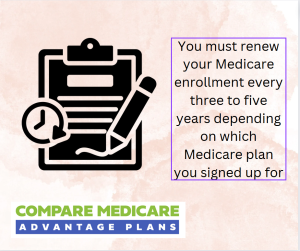




Humana Medicare Advantage Plans Wisconsin 2026
Discover some of the potential Humana Medicare Advantage Plans in Wisconsin for 2026 with this expert guide. Uncover the plan features that could be designed to enhance your healthcare experience.
With focused details on how these plans could potentially offer you cost savings and better coverage in the coming year; this guide steers clear of fluff to provide you with the actionable insights you need.
Dive into our resources to find a plan tailored to your Wisconsin healthcare needs in 2026.
Key Takeaways
- Humana offers a variety of Medicare Advantage plans in Wisconsin for 2026, including HMO, PPO, and PFFS options, and might incorporate prescription drug coverage and possible Part B premium reductions.
- The potential cost savings could be a key component of certain Humana’s Medicare Advantage plans, with opportunities that might include reduced cost sharing, preferred pharmacy networks that could potentially provide lower-cost prescriptions, and special plans like the Humana Premier Rx Plan™ that will likely cover a broad range of medications.
- Qualifying for Humana’s plans requires being over 65 or meeting disability criteria, and plan selection should consider an individual’s specific healthcare needs, with annual contract renewals and licensed agents available for support.
Compare Plans in One Step!
Enter Zip Code
Understanding the Potential Humana Medicare Advantage Offerings in Wisconsin for 2026

Humana, a renowned insurance provider, will likely be continuing to offer Medicare Advantage plans in Wisconsin, including Medicare Advantage HMO options. These plans, which also include Health Maintenance Organization (HMO), Preferred Provider Organization (PPO), and Private Fee-for-Service (PFFS) options, are designed to cater to the diverse needs and preferences of Medicare-eligible individuals.
Types of Humana Advantage Plans
Humana offers four types of Medicare Advantage plans – HMO, PPO, SNP, and PFFS – each designed with unique features to cater to various health needs. The HMO plans are for those who prefer to have a designated primary care physician (PCP) and don’t mind getting referrals for specialists.
These plans may include routine dental, vision, and hearing benefits, potentially ensuring all-around healthcare coverage.
This plan provides comprehensive coverage, including Medicare Parts A and B benefits, and even incorporates an annual plan review for added assurance.
For those who want the utmost liberty in provider selection, the PFFS plan may be a good fit. This plan provides:
- Extensive Medicare Part A and B benefits
- Prescription drug and emergency coverage, both within and outside the U.S.
- An annual maximum out-of-pocket cost limit for added financial security.
Potential Plan Benefits and Features

The types of plans and the potential benefits and features Humana might offer should be taken into consideration when selecting a plan. Some of Humana’s Medicare Advantage Plans in Wisconsin could potentially provide a broad range of benefits.
Some of these plans might include prescription drug coverage. Certain Humana plans may include a Part D plan known as Humana Premier Rx Plan™, which may be able to cover a wide range of over 3,700 prescription drugs.
Moreover, some of these plans may also offer dental benefits, though with potential limitations such as an annual dollar cap. Vision and hearing coverage may also be part of the package too, possibly offering comprehensive coverage for your healthcare needs.
What’s unique about some of these Humana Medicare Advantage plans, is that certain extra benefits could be restricted to specific subgroups of beneficiaries. For instance, individuals with conditions like diabetes or congestive heart failure might receive benefits that could be tailored to their needs.
Enrollment and Eligibility Criteria
Before being enticed by the range of benefits that some of Humana’s plans could offer, you must ensure that you meet the enrollment eligibility criteria. To be eligible for Humana’s Medicare Advantage Plans, you must be 65 years or older.
However, provisions are in place for those under 65 who have a disability or end-stage renal disease, allowing them to qualify for enrollment. To enroll in Humana’s Medicare Advantage plans in Wisconsin, for instance, you must be a U.S. citizen or legal resident for five or more years.
You must also be enrolled in Medicare Part A and Part B, whether you’re aged 65 and above or under 65 and meet the criteria for disability or end-stage renal disease.
To enroll, call 1-833-641-4938 (TTY 711), Mon-Fri 8 am-9 pm EST. One of our licensed agents can provide comprehensive information, personalized guidance, and ongoing assistance to navigate the enrollment process for private insurance companies, making it easier for beneficiaries to make informed decisions about their healthcare.
Analyzing the Possible Costs and Savings with Humana Plans

Even though comprehensive coverage and a variety of plans may be advantageous, it’s undeniable that the potential cost could play a significant role in health plan selection. The good news is that some of Humana’s Medicare Advantage plans might offer several cost-saving opportunities.
Some of these plans could potentially include reduced cost sharing, additional supplemental benefits, and a Part B premium reduction benefit on certain plans.
The level of savings from Humana’s Part B premium reduction could vary based on the specific Medicare Advantage plan.
Additionally, certain Humana plans may prioritize certain pharmacy networks, which could include:
- CenterWell Pharmacy
- Albertsons Companies pharmacies
- Kroger Health
- Costco
- Publix
- HEB
- Walgreens
Some of these lower-cost preferred pharmacies could potentially offer prescriptions at a reduced cost compared to other providers like standard in-network pharmacies, possibly providing financial incentives for beneficiaries.
Understanding the Part B Premium Reduction
The Part B premium reduction, also known as the Medicare Giveback Benefit or the Part B Giveback, will likely be a program that may be designed to pay part or all the Medicare Part B premium.
This could potentially be a wonderful benefit that might be offered by certain Medicare Part C (Medicare Advantage) plans that might assist in reducing beneficiaries’ Part B premium costs.
In Wisconsin, some plans that could offer the Part B premium reduction could potentially include features like the Medicare Giveback Benefit and possible options like the Humana USAA Honor plan.
Preferred Pharmacy Networks
Pharmacy costs may quickly add up, especially if you have multiple prescriptions. That’s where some of Humana’s preferred pharmacy networks could come in.
These networks could potentially provide discounted prices to Humana members, possibly making medications more affordable.
While you may have the option to use non-preferred pharmacies, doing so may incur extra expenses. It’s also important to present your Humana member ID card when using a pharmacy within the network.
By potentially offering medications at a reduced cost compared to standard in-network cost-share pharmacies, some of Humana’s preferred pharmacy networks might be able to enable you to pay lower copayments for Tier 1 and 2 prescriptions, possibly leading to significant cost savings.
Performance and Ratings: Humana’s CMS Star Ratings

The CMS Star Ratings could help beneficiaries evaluate the quality and effectiveness of Medicare Advantage plans.
These ratings, ranging from 1 to 5 stars, will likely be determined based on factors like member satisfaction, health outcomes, and customer service.
The quality of Humana’s plans could be mirrored in their performance in these ratings. However, it’s important to note that some of the specific data on the comparison of Humana’s CMS Star Ratings in Wisconsin with other Medicare Advantage providers may not be provided, possibly suggesting that explicit comparisons may not be readily available.
Special Needs Plans and Dual Eligibility

Humana acknowledges that healthcare cannot be generalized to fit everyone equally. That’s why Humana may offer Special Needs Plans (SNPs) for Medicare beneficiaries who may have specific health conditions or dual eligibility for both Medicare and Medicaid services.
Eligibility for these plans will likely differ based on the plan type. For instance, some Dual-Eligible Special Needs Plans (D-SNPs) may be designed for individuals who are eligible for both Medicare and Medicaid.
Chronic Condition Special Needs Plans (C-SNPs) could be tailored for individuals with conditions such as diabetes, chronic heart failure, and other chronic or disabling conditions.
Dual-eligible beneficiaries in these plans may receive a wide range of benefits, which may include coverage for dental, vision, and hearing services.
Insights into Humana’s Healthcare Network in Wisconsin
Humana’s healthcare network in Wisconsin will likely offer a wide range of providers, hospitals, and specialists, possibly ensuring that plan members have access to comprehensive and high-quality care.
Notable providers in the network may include Aurora Health Care, the largest provider in the state, and Centerwell Health Care Services.
The Humana Insurance Company may also provide extensive coverage for specialty care, potentially encompassing specialized healthcare through Medicare Special Needs Plans (SNPs) and specialty Rx services for certain medication management and other tailored healthcare needs.
So, no matter what your healthcare needs are, Humana’s healthcare network will likely have you covered.
Tailoring Your Plan Choice: Factors to Consider
The decision about a plan isn’t merely based on understanding what each plan offers. It’s also about identifying a plan that could potentially cater to your needs. Some factors in this decision could include the potential:
- costs
- provider network
- prescription drug coverage
- additional benefits
Certain factors such as location, personal needs, and disability should all be considered when choosing a Humana Medicare Advantage plan for Medicare Advantage members.
The potential cost of Humana’s Medicare Advantage plans could play a significant role in determining the affordability and value proposition for individuals, as the right Humana plan will likely depend on several factors.
The provider network could be equally important as it could directly impact the accessibility of preferred doctors, hospitals, and specialists, as well as potential out-of-pocket costs.
The possibility of having prescription drug coverage may also play a significant role in the selection of a Humana Medicare Advantage plan as it could impact whether beneficiaries may have access to both medical coverage and medication within a single plan.
The Importance of Medicare Contract Renewal
 After settling on a plan, it’s crucial to be aware that plans could change or be discontinued due to annual contract agreements. This is why Medicare contract renewal is essential.
After settling on a plan, it’s crucial to be aware that plans could change or be discontinued due to annual contract agreements. This is why Medicare contract renewal is essential.
The annual contract renewal process for Humana’s Medicare Advantage Plans may entail the automatic renewal of the plan on an annual basis. It is crucial to carefully review any modifications to ensure that the plan continues to align with your requirements.
If a plan is not renewed, there may be a risk of losing coverage and being defaulted back to Original Medicare. Hence, it’s of utmost importance to choose a new plan that could potentially guarantee the continuity of the coverage you require.
Navigating Plan Selection with Licensed Sales Agents
The process of selecting a Medicare Advantage plan may seem daunting. However, rest assured, you’re not expected to navigate it alone. Licensed sales agents, also known as brokers, could help guide you through the process.
These individuals are licensed and well-informed about Medicare plans and may be able to assist beneficiaries in navigating the intricate process of choosing the appropriate coverage.
Licensed sales agents could help you with the following:
- Evaluate potential healthcare needs and suggest plans that might align with those needs
- Help you understand the various Medicare Advantage plans and their potential advantages
- Lead you through the available options
- Aid in plan selection and enrollment navigation.
Summary
Finding the best Medicare Advantage Plan available in your area is an essential step in securing the coverage you may need while potentially saving money.
By understanding the different types of plans, comparing the possible costs and coverage, evaluating provider networks, and enrolling in the right plan during your Initial or Special Enrollment Period, you can ensure that you have comprehensive coverage tailored to your needs.
Don’t hesitate to explore the potential Medicare coverage options, such as Medicare Supplement Plans and Standalone Prescription Drug Plans, that could help you get the best possible coverage for your healthcare needs.
Frequently Asked Questions
→ What is the biggest advantage of Medicare Advantage?
Some of the Medicare Advantage plans may have a broad range of provider networks, co-payment requirements, and annual caps on out-of-pocket spending, making them more flexible than Original Medicare.
→ Why are people choosing Medicare Advantage plans?
People might choose Medicare Advantage plans due to the fast prior authorization acceptance rates and the quick payments from insurers.
→ What is the best Medicare Advantage plan?
Based on data from previous years, the best Medicare Advantage plan will likely be Humana, as it has been highly recommended based on its top ratings, positive customer feedback, and wide selection of plans. Customers report high-quality care with Humana plans compared to AARP/UHC.
→ What additional benefits might be offered from a Medicare Advantage Plan?
With certain Medicare Advantage Plans, you may be able to get additional benefits including prescription drug coverage, dental and vision coverage, and hearing aids.
→ How do I find Medicare Advantage Plans available in my area?
To find Medicare Advantage Plans available in your area, use Medicare’s Plan Finder Tool or contact State Health Insurance Assistance Programs (SHIPs) for more information.

ZRN Health & Financial Services, LLC, a Texas limited liability company



